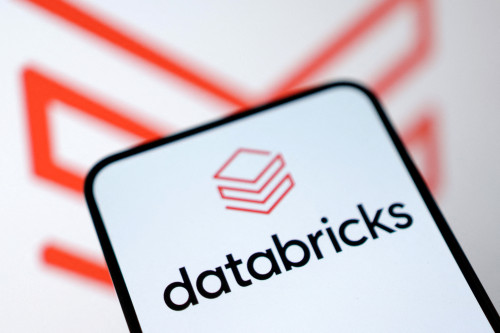By Pritam Biswas and Ateev Bhandari
(Reuters) -Analytics firm Databricks said on Tuesday its valuation was set to jump 61% to more than $100 billion in a funding round less than a year after its last, underscoring strong investor demand for artificial intelligence startups.
The company said it has signed a term sheet for a Series K round, but did not disclose the amount it was raising.
“This valuation level indicates a concentration of late-stage capital into companies identified as market leaders in foundational technology sectors,” said Derek Hernandez, senior research analyst at PitchBook.
San Francisco, California-based Databricks has about 15,000 customers including payments firm Block, energy giant Shell and electric vehicle maker Rivian.
Late last year, Databricks had raised $10 billion in one of the largest venture capital funding rounds in history, which valued it at $62 billion.
It expects to use a portion of the latest funds in product development and for mergers and acquisitions in the AI segment, as corporations and governments worldwide rush to leverage efficiencies from the nascent but rapidly evolving technology.
According to Hernandez, investors are assuming that “the total addressable market will be large enough to support multiple high-value companies and that Databricks will maintain a durable competitive advantage”.
Databricks has around 8,000 employees globally and competes with listed companies such as Snowflake, which has a market capitalization of about $66 billion.
Startups are choosing to stay private for longer amid higher interest rates and unpredictable market appetite for initial public offerings over the past few years. Capital is also available for larger late-stage rounds as private market investors sit on record levels of dry powder.
OpenAI is also in talks to close an employee share sale, which would value the ChatGPT parent at around $500 billion, Reuters had reported earlier this month.
“What used to be a pre-IPO round is now often Series G or later, and the capital coming in is frequently functioning like public equity, just without the public oversight,” said Chris Lawrence, founder and managing partner of Labyrinth Capital Partners.
(Reporting by Pritam Biswas and Ateev Bhandari in Bengaluru; Editing by Shilpi Majumdar and Maju Samuel)



